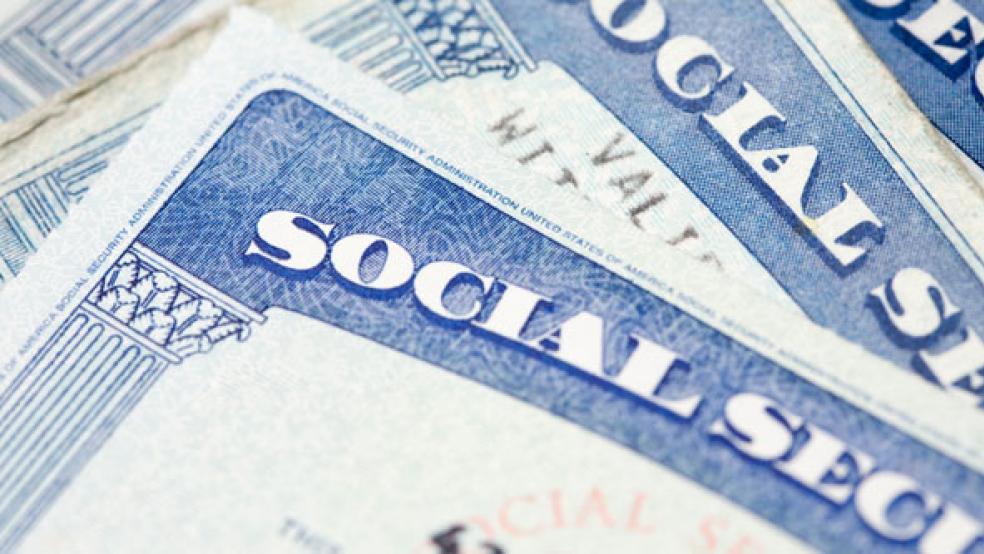Many people know that Social Security is designed to provide supplemental income to Americans in retirement, but what most people don't know about the government program could seriously damage their golden years.
Here are some points you may not be aware of.
Social Security isn't just a retirement benefit.
Most notably, it offers a disability benefit with no age requirement for those unable to work "because of a physical or mental condition that is expected to last at least one year or result in death."
But please don't cancel your group or private disability income insurance policies expecting Social Security to pick up the tab. These are notoriously difficult benefits to receive.
Even the Social Security Administration itself offers this warning: "Our disability rules are different from those of private plans or other government agencies. The fact that you qualify for disability from another agency or program does not mean you will be eligible for disability benefits from us."
RELATED: 8 SMART WAYS TO LOWER YOUR TAXES IN RETIREMENT
Social Security also offers benefits to a spouse and children of benefit recipients, as well as spouses, children or dependent parents of a deceased worker.
You can take Social Security retirement benefits early.
"Full retirement age is the age at which a person may first become entitled to full or unreduced retirement benefits," the SSA states.
If you were born before 1938, your full retirement age (also known as FRA) is 65; if you were born after 1959, you'll be waiting until your 67th birthday to be counted among the fully retired.
Regardless of your age, you may begin receiving your retirement benefits before your full retirement age—as early as age 62—if you're willing to do so at a discounted income rate. If your FRA was 65, you would have been able to receive 80 percent of your FRA benefit at age 62, but that ship sailed many years ago (since you're now 76, at the youngest).
If you're FRA is 67, you may receive 70 percent of your full retirement benefits at age 62.
The catch here is that you probably don't want to take your retirement benefits early unless you're truly retired, because for every $2 of earned income over $15,120 (in 2013), your Social Security benefits will be reduced by a buck—and you'll be subjected to the discounted benefit forevermore.
RELATED: THE MOST ALARMING TRUTH ABOUT THE NEW RETIREMENT
As if that isn't complicated enough, Social Security offers a sweeter deal in the year in which you reach full retirement age. In that year, you can make up to $40,080 without seeing your benefit reduced, and the reduction is $1 for every $3 earned over the $40,080 threshold. Once you reach FRA, you can earn an unlimited amount without any reduction in your benefits.
You can also take your retirement benefits late—as late as age 70.
Why on earth would you do that? If you don't actually need the income today, theimplied rate of return on waiting is a pretty good deal. The nominal (not adjusted for inflation) effective rates of return on your "investment" for waiting to take Social Security benefits later are between 4.9 percent and 8.3 percent a year—not bad, especially in this whacky market.
Here's my short-cut conclusion on when to take Social Security: If your life expectancy is likely to be shorter than average or you really need the income now, take it as early as you can without being penalized for excess income.
However, if you're in good health and can delay taking your Social Security retirement benefits, by all means, wait.
Especially if you are still working (thereby increasing the underlying benefit upon which your eventual benefit will be determined) waiting may actually provide a hedge against future inflation—a form of longevity insurance for those scared of running out of money.
Nonworking spouses—even those who've never had an income—are eligible for a Social Security benefit.
The spousal benefit can net the non- or lesser-earner up to half of the benefit of the higher-earning spouse.
RELATED: 7 REASONS YOU SHOULDN'T RETIRE NOW
Let's say that John and Jane are both the same age. John is due an FRA benefit of $300 a month, having stayed home with the kids and spent his occupational efforts in the nonprofit realm, while Jane is expecting $2,500 a month at FRA.
John is eligible for either his benefit or half of Jane's—whichever is greater. John just got a big raise, because instead of taking his $300, he's bumping up to $1,250, half of Jane's. Even if John and Jane get divorced, as long as they were married for at least 10 years and John doesn't remarry, he'll continue to receive half of Jane's Social Security retirement benefit.
Lesser-earning spouses can even double-dip, taking their smaller benefit early (say, at age 62) and then claiming spousal benefits when their higher-earning spouse reaches full retirement age.
This one's a doozy, so stay with me.
Staying with the previous example, let's assume that John and Jane don't want to take early Social Security at 62 because Jane (the primary breadwinner) is still working, but John is making less than $15,000 and they wouldn't mind some extra income.
Unfortunately, John can't claim his spousal benefit (half of Jane's) until she claims, which she won't until FRA, at 67. John can claim his early Social Security at age 62, though, which will be 70 percent of his $300 FRA benefit, or $210.
READY TO RETIRE: 7 THINGS YOU NEED TO DO NOW
When Jane claims her FRA benefit at age 67, John can bump up to the spousal benefit. Because he claimed early retirement benefits, though, he won't be able to take the full benefit of $1,250. It will be reduced by the proportionate early Social Security discount he received—that is, 30 percent of $300, or $90. That means John's spousal benefit will be $1,160.
These aren't the system's only eccentricities. To be honest, even some accountants and financial advisors get tripped up on this topic. Social Security isn't simple, and as a result, millions of Americans are leaving on the table billions of dollars to which they are entitled.
Do the research or get together with your financial advisor to make sure you're not one of them.
This piece originally appeared at CNBC.com
Ready more at CNBC.com:
4 Ways to Maximize Your Social Security Benefit
Americans Pay to Shore Up Social Security
Social Secutrity will Run out of Money in 2033





